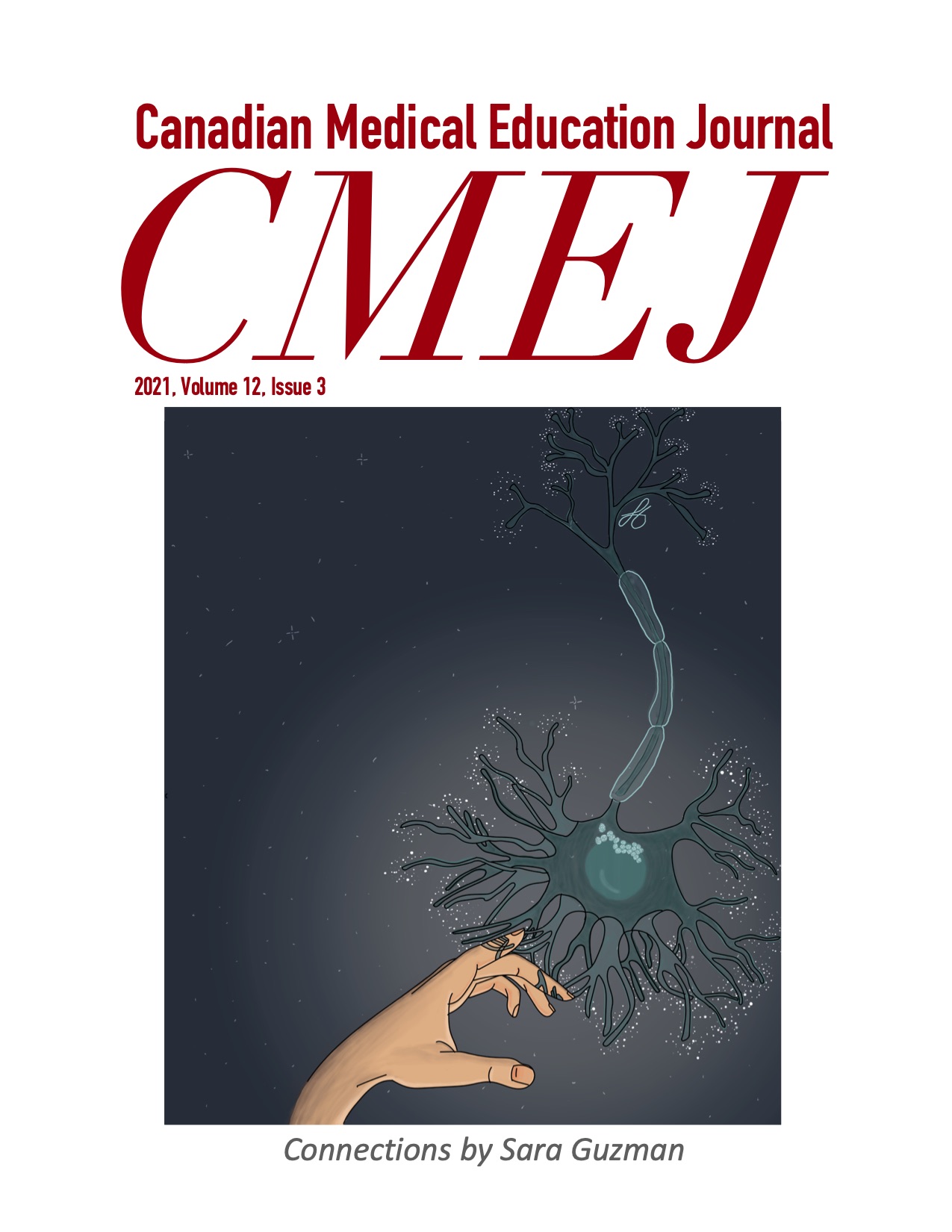A chance for reform: the environmental impact of travel for general surgery residency interviews
DOI:
https://doi.org/10.36834/cmej.71022Abstract
Background: In light of the global climate emergency, it is worth reconsidering the current practice of medical students traveling to interview for residency positions. We sought to estimate carbon dioxide (CO2) emissions associated with travel for general surgery residency interviews in Canada, and the potential avoided emissions if interviews were restructured.
Methods: An 8-item survey was constructed to collect data on cities visited, travel modalities, and costs incurred. Applicants to the University of Ottawa General Surgery Program during the 2019/20 Canadian Resident Matching Service (CaRMS) cycle were invited to complete the survey. Potential reductions in CO2 emissions were modeled using a regionalized interview process with either one or two cities.
Results: Of a total of 56 applicants, 39 (70%) completed the survey. Applicants on average visited 10 cities with a mean total cost of $4,866 (95% CI=3,995-5,737) per applicant. Mean CO2 emissions were 1.82 (95% CI=1.50-2.14) tonnes per applicant, and the total CO2 emissions by applicants was estimated to be 101.9 (95% CI=84.0 – 119.8) tonnes. In models wherein interviews are regionalized to one or two cities, emissions would be 57.9 tonnes (43.2% reduction) and 84.2 tonnes (17.4% reduction), respectively. Overall, 74.4% of respondents were concerned about the environmental impact of travel and 46% would prefer to interview by videoconference.
Conclusion: Travel for general surgery residency interviews in Canada is associated with a considerable environmental impact. These findings are likely generalizable to other residency programs. Given the global climate crisis, the CaRMS application process must consider alternative structures.
Downloads
Published
How to Cite
Issue
Section
License
Copyright (c) 2021 Benjamin Fung, Isabelle Raiche, Tyler Lamb, Nada Gawad, Andrea MacNeill, Husein Moloo

This work is licensed under a Creative Commons Attribution-NonCommercial-NoDerivatives 4.0 International License.
Submission of an original manuscript to the Canadian Medical Education Journal will be taken to mean that it represents original work not previously published, that it is not being considered elsewhere for publication. If accepted for publication, it will be published online and it will not be published elsewhere in the same form, for commercial purposes, in any language, without the consent of the publisher.
Authors who publish in the Canadian Medical Education Journal agree to release their articles under the Creative Commons Attribution-Noncommercial-No Derivative Works 4.0 Canada Licence. This licence allows anyone to copy and distribute the article for non-commercial purposes provided that appropriate attribution is given. For details of the rights an author grants users of their work, please see the licence summary and the full licence.










